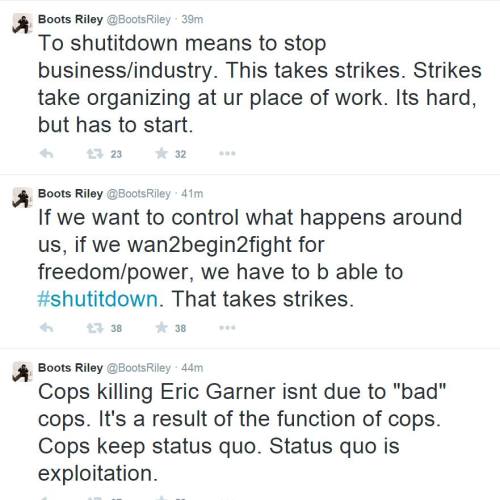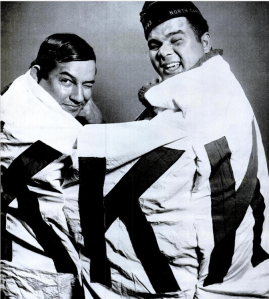This was a piece that I wrote several months ago, but never published. There is no time like the present, though.

Back when I was a liberal posing as a socialist in my early 20s, I would always sneer at the suggestion of a general strike by the leftists I hung out with. After all, the only thing approaching a national general strike that I had ever read about in American history books was the Great Railroad Strike of 1877. That strike, which began in West Virginia with workers on the Baltimore and Ohio Railroad, ended with President Rutherford B. Hayes calling out federal troops to suppress the strikes and states passing laws to ensure that such interstate cooperation amongst the working class would be rendered illegal in the future. Plus, my experience in organizing for the Democratic Party had embittered me to the notion that low-income families and communities would ever join such an action. My thinking was, “Hell, I cannot even get these folks to vote for shiftless, do-nothing Democrats! What makes y’all think these folks would willingly walk off their job to support their neighbors?”
But as the conversation surrounding the non-indictments of police officers in the death of Eric Garner and Michael Brown has become focused on possible solutions and methods for obtaining those solutions, I find myself being thoroughly disappointed. If I am not reading something on body cameras or hiring “smarter” cops (as if the systems producing state violence are somehow no match for your run-of-the-mill MPA student), I am reading about meetings with the President where it is difficult to discern whether the florid rhetoric was matched by any real binding commitment to anything other than technocratic tinkering around the edges. Phillip Agnew exhorts that if the demands of the group in that meeting are not met, then they will “shut it down”.
But shut down what? And how? The protests that have caused major traffic backups in major American cities are exhilarating to watch, for sure. Many of us could only dream about such an occurrence unfolding nightly before our eyes a year ago, and yet here we are. It has been a sight to see. But anyone who has done community organizing or political organizing can tell you that such micro-level actions are not sustainable for the weeks, months, and possibly years that it will take to see change through this system of ours. And despite all the rhetoric of needing to “decenter” people who are either indirectly affected or unaffected in movements for change, the fact is that it will require a coalition of communities and causes to right the systems of injustice that have pulverized and demoralized us for so long. That means communists, socialists, liberals, communities and activists of all colors, low-income, middle-income, and many more will be needed if we plan on “shutting down” anything.
Given this, as well as the perspective that comes from shifting ideologies and growing older, I have come to see that the only way this will come about is through economic pressure and direct action that focuses solely on the accumulation of capital. No amount of liberal technocratic edge-tinkering will bring justice to communities like Ferguson, Brooklyn, or Phoenix so long as it leaves the status quo relationship between state and citizen in place.
Therefore, I join others in supporting the call for a nationwide general strike. There are, however, two big things that would have to be put into place before such an action could be successful. After all, this would be a massive undertaking for a country that has never seen such an occurrence.




